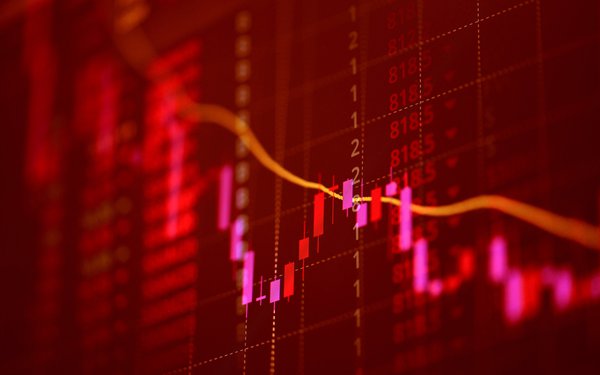
Fears that the U.S. is at risk of falling into
a recession after Friday's weak jobs report triggered stock markets to sell off on Monday, a trend that began last week in the U.S.
The Tokyo’s Nikkei 225 plunged 12.4% today, as it
reported its biggest one-day percentage drop since October 1987, the Black Monday crash. The selloff continued in Europe and then the U.S.
As global stock markets have plummeted over fears of
a U.S. recession, the question remains how much this will impact the advertising industry. Earlier last week, some of the indexes closed at all-time highs.
“GDP growth and consumer
spending will ultimately determine the fate of ad spending budgets over the mid-term, but these types of jolts can lead CFOs and CMOs to tap on the brakes and take pause,” said Dan Salmon, lead
of the U.S. Internet research team at New Street Research.
advertisement
advertisement
Indeed, economic uncertainty changes the comfort level for CMOs and CFOs -- especially for B2B businesses, said Kevin Lee,
Didit chairman and founder.
"There are also ripple effects as companies look to go public as they see valuations slashed or windows close,” Lee said.
A recession would have
several significant impacts on the advertising industry, according to Jeremy Goldman, senior director, marketing, commerce and technology at Emarketer.
Businesses tend to cut their advertising
budgets during economic downturns, and publishers have reported declines in digital ad revenue ranging from 9% to 30% during recessionary periods, Goldman explained in an email to Media Daily
News.
Advertisers often adapt approaches to match the economic climate, with strategies such as using promotions and short-term price breaks to appeal to cost-conscious consumers.
“In a recession when advertisers are more price sensitive, wise advertisers will look for arbitrage opportunities,” Goldman explained. “As some businesses reduce their
advertising, others may see an opportunity to gain more visibility at potentially lower costs, leading to a competitive landscape for available ad space.”
Goldman said some experts argue
that brands should continue advertising during recessions as a way to differentiate themselves from competitors that may have reduced or ceased advertising. This could become a way to potentially gain
a competitive advantage.
“Several factors suggest a recession may be avoided, including expected economic growth re-acceleration, AI-driven gains being legitimate, although admittedly
expensive, potential Federal Reserve actions to cut interest rates soon, and Goldman Sachs' estimation of a 25% recession probability — not insignificant, sure, but more unlikely than
not,” he said.
Emarketer forecasts that in July, total holiday retail and ecommerce sales for the 2024 holiday season will reach $1.353.34 billion, with retail ecommerce contributing
$266.89 billion, and physical retail about $1,084.34 billion.
A research note from Brian Wieser, Principal at Madison and Wall, suggests media owners and marketers should “not
necessarily” be concerned. He points to U.S. employment conditions that remain “really strong with unemployment at only 4.3%, which should be considered to be relatively low.”
The report also references “retail sales growth that has been relatively modest at 2-3% year-over year in recent months, depending on definition of retail, but services sales were likely up
by a lot more: during the second quarter consumer spending on services rose by 6.9%, allowing total consumer spending to grow by 5.2%, which actually represented an acceleration vs. the first quarter
of 2024 despite improving inflation conditions.”
The economy could have hit a tipping point, Wieser wrote, but it seems more likely that as interest rates are cut by the Federal Reserve,
consumers will free up resources and employers will increase investments.
“With respect to advertising, it should be true that a stronger economy is more favorable for advertising than a
weaker economy, but it doesn’t necessarily follow that a weak economy means a weak advertising market, nor that a strong economy means a strong ad market,” Wieser wrote. “In the
later part of 2022 and early 2023 when we had an incredibly strong economy in the U.S. and much of the world, we also saw a meaningful slowdown in advertising.”